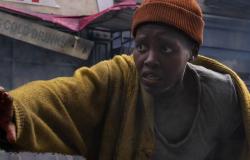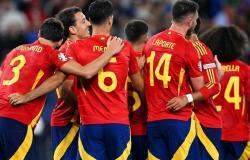After his first month in office, the new Taiwanese president, Lai Ching-te, has hinted that the conceptual front will be one of the main workhorses of his administration. And, due to its implications, it is not a minor issue.
The emphasis on her sovereign commitment, more incisive than that of the outgoing president Tsai Ing-wen, aims to highlight that “the Republic of China and the People’s Republic of China are not subordinate to each other” since the government established in Beijing in 1949 never He has ruled Taipei. This invites us to think that the separate existence of both political entities is more than a mere fact. And it is equivalent to endorsing the so-called “two-state theory”, radically rejected by the Communist Party of China (CCP).
The CCP, on the other hand, recalls the so-called “1992 consensus,” which refers to a tacit understanding with the Kuomintang (KMT) that both sides of the Strait recognize that there is “one China,” and each side has its own interpretation. of what “China” is. For some it is the Republic of Sun Yat-sen and for others the Republic of Mao.
The truth is that, without going back much further, the island of Taiwan was Tokyo’s war booty at the end of the 19th century (Treaty of Shimonoseki that ended the first Sino-Japanese War), and later returned to the sovereignty of the Republic of China of Chiang Kai-shek in 1945. And so it continued during the dictatorship of Chiang and his son Chiang Chin-kuo, with the fiction of being the legitimate representative of a China that constitutionally claimed power over the continent that it one day they would recover from the communist jaws.
Another important conceptual front is UN resolution 2758, which recognized the People’s Republic of China as the only legitimate government of China in 1971. Until now it has been understood that this implies Taiwan’s belonging to China, an issue that should be resolved in its moment through political and peaceful means. Beijing is now accused of having distorted its meaning to exclude Taiwan from the international organization and its system. The resolution would say who should represent China but Taiwan would not take it for granted and could represent itself….
And a third focus is the one-China principle, that is, the idea that Taiwan and mainland China are part of one and the same China, which is the basis for the CCP’s claim to sovereignty over Taiwan. This would be different from the “one-China policy” sponsored by Washington, which essentially acknowledges that China “says” there is only one China, but that the US is not so sure about it, rather it is clear that it wants Taiwan to reject being part of China. The US one-China policy is the policy of neutralizing this aspiration.
Lai has a strong ally in the US on this front of concepts. Recently, two deputy undersecretaries of state visited Taiwan and met with foreign representatives, many of them European, to educate them on this conceptual shift. In essence, UN Resolution 2758 does not involve Taiwan nor should it be confused with China’s “one China” principle. In this way, the US government would vary its approaches to helping Taiwan establish pseudo-formal ties with foreign countries, a taboo for China. Beijing has reportedly misinterpreted the resolution and “wrongly” claimed that it reflects an international consensus for its ‘one China’ principle.”
The United States has been more than willing to play the role of intermediary with countries that have both a U.S. embassy and a Taiwanese embassy or representative office, to help strengthen relations between Taiwan and these countries or develop multilateral relations.
And the political ammunition to provide arguments for raising the sovereignist tone is reinforced by arms sales. Since Lai took office on May 20, the US has already announced the supply of two arms packages worth several hundred million dollars (and fifteen since Biden took office in 2021). Lai seems to be convinced of two things: first, that only military force and capabilities can prevent war in the Strait; second, that the People’s Liberation Army gesticulates a lot but will not attack.
The rise in cross-strait tensions under Lai compared with ties under the Tsai and Ma administrations is on an upward trend and is a clear reflection of how Lai’s pro-independence leanings are unfavorably affecting cross-strait relations.
The Lai administration’s apparent determination also rankles the opposition in Taiwan. Both the Kuomintang and Ko Wen-je’s People’s Party warn that Taiwan should move away from confrontational rhetoric.
Lai’s increased tone is counterpointed by Beijing’s recent change of direction, which has just approved guidelines for its courts, prosecutors and public and state security agencies to “severely punish supporters of Taiwan independence for dividing the country and inciting secession crimes according to law.”
(For Public Newspaper)

![Three word games | China Policy Observatory [OPCh]](https://euro.eseuro.com/temp/resized/medium_2024-06-28-078006204c.jpg)




